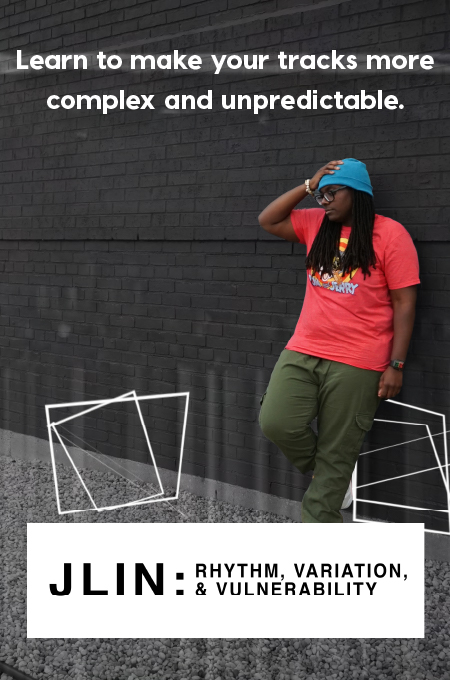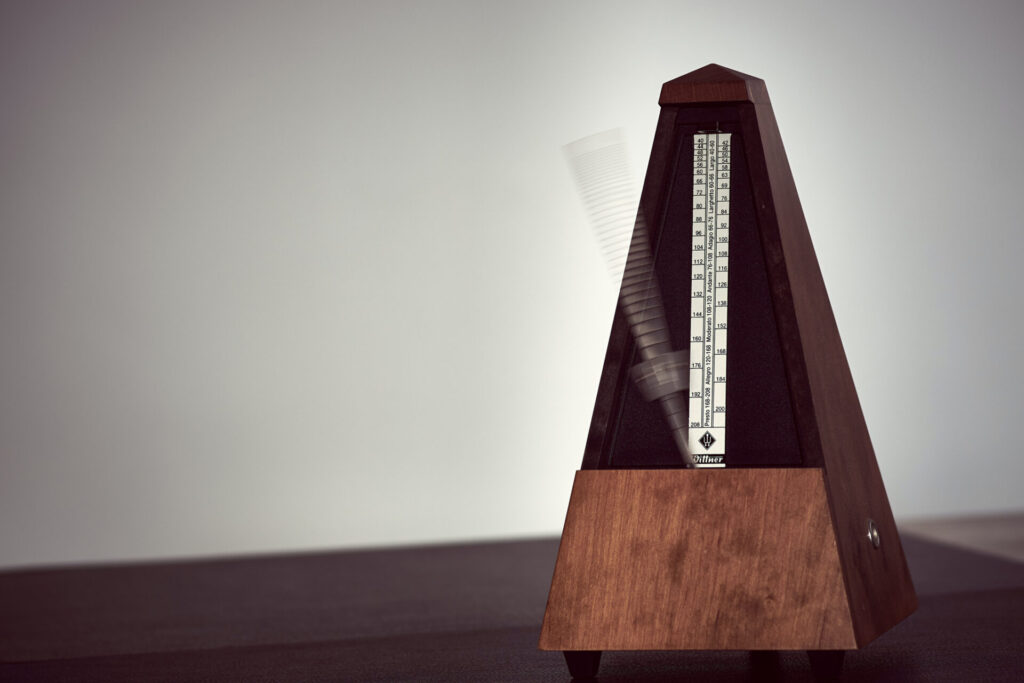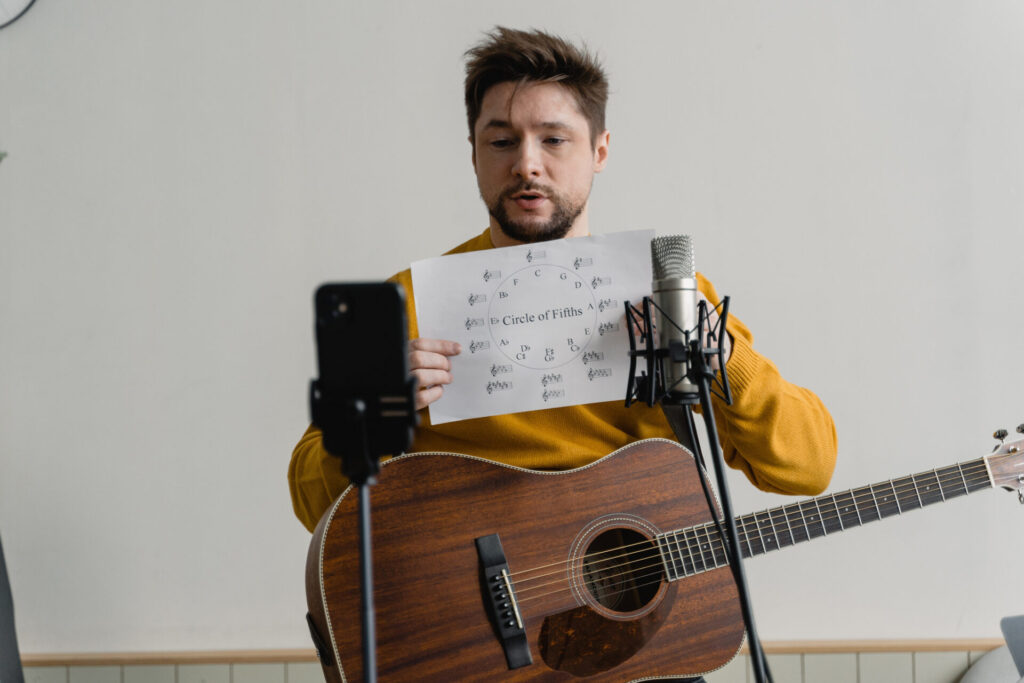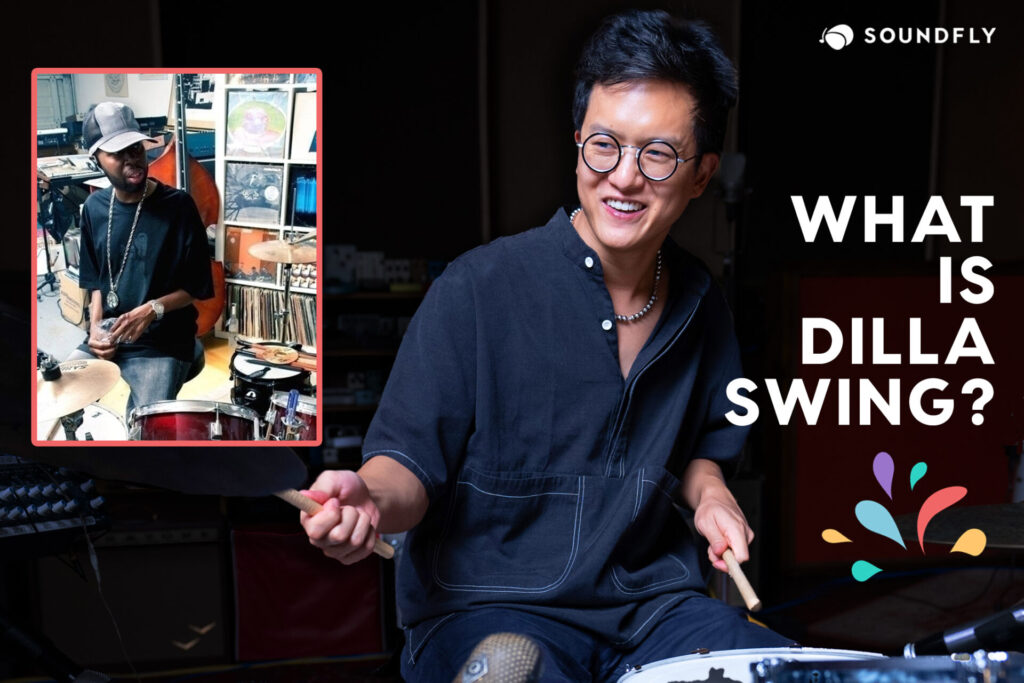+ Welcome to Soundfly! We help curious musicians meet their goals with creative online courses. Whatever you want to learn, whenever you need to learn it. Subscribe now to start learning on the ’Fly.
A few weeks ago, I was on tour with Chris Forsyth & the Solar Motel Band in support of the band Heron Oblivion. When I learned that guitarist and vocalist Meg Baird was in Heron Oblivion, I was psyched — I think Meg is great. I’m now embarrassed to admit it, but I was kind of bummed when I found out that Meg was the drummer in the band! Meg is a great singer and guitarist and I wanted to see her do “her thing,” not fill a secondary, multi-instrumentalist kind of role. Like, how good of a drummer could she really be?
It turns out Meg is a really cool drummer with a great feel and, as I have come to really dig this band, I couldn’t imagine another drummer filling her position in Heron Oblivion. She brings so much vibe to the music and seems to come at her role as a drummer with a unique and personal perspective. So, I’d like to explore my initial reaction a little bit. Do I just inherently dislike multi-instrumentalists? Is there such a thing as a “Single Instrument Virtue”?
Watch Meg Baird play her guitar and sing. Is it what she does best, or…?
Sticking to a single instrument has been at the core of my musical ideals. I’m a guitarist. Playing guitar is what I do for a living, it’s what I teach, and it’s what I spend most of my days thinking about. I’ve been dedicated to the instrument ever since I picked one up and I get nervous at the thought of taking a day off from my guitar. I’ve been playing this thing almost every day for the past 25 years and I see myself on a musical quest that is pretty far from complete.
Like most musicians, I’ve gone through several stages in my relationship with my instrument. I’ve been in love with it. I’ve felt a love/hate thing towards it many times over. I’ve considered it to be a means to an end for making music. And I guess you could say I’ve considered it to be my muse. I’m constantly trying to connect myself to the instrument in new ways, often in ways that border on the obsessive: I once spent the better part of a year focused on little more than how to expand my vocabulary of guitar feedback and find the best combination of amplification and alternate tuning in order to get the best resonance out of the instrument.

I also adore playing the drums, but my feelings aren’t the same as they are with the guitar. It’s not as deep for me and it’s not as emotional. Drums are fun! I’ve had a few sets over the years that I use to rock out and enjoy a different way of engaging with music, but I never practice in any traditional way. Each time I’ve had drums in the house, I’ve decided to get rid of them so that I wouldn’t get distracted from what I consider my “real work” on the guitar. It felt like cheating. If I have drums at my disposal, I probably won’t be composing or practicing the guitar as much as I would like. And that would compromise some of my musicality, right?
What about the musicians I most admire, whose standards I hold as the highest models of instrumental creativity, craft, technique, and artistry? I want to listen to musicians who have a dedication to creating music at the highest level, where the lines between commitment and obsession blur. I like to listen to artists whose music makes me feel like I need to get back to work and keep going. Off the top of my head, I’m thinking of:
John Coltrane and his saxophone.
Ravi Shankar and his sitar.
Neil Young and his guitar. But Neil has a really cool vibe when he plays piano!
Stevie Wonder as both keyboardist and singer. But Stevie Wonder plays drums and harmonica on some of his records and he’s great.
Bootsy Collins and his bass. But a few months back, I clicked on a video of him playing on The Late Show with Stephen Colbert, and there he was behind the drum kit!
Bootsy is the ultimate funk bass icon and here he was playing drums and he sounded great! He’s played drums on P-Funk records, but I had never seen a video of him playing. I couldn’t stop talking about it all week. He didn’t do anything nearly as flashy as his bass playing, he just played simple, tasteful funk with a deep feel.
There’s clearly something about the drums that draws in non-drummers. When Stevie Wonder plays drums, you can hear the same feel as you do when he plays keyboards — the accents, the groove, the personality. That feel is present in everything he does, even though there’s no straightforward technical relationship between the two instruments. That’s because drums allow us to focus on the rhythmic side of our musicality — exploring our natural timing from a new perspective. Add a little bit of taste and an open mind, and maybe we all have a drummer inside of us, just waiting to get out!
Does this mean that we should all be figuring out how to play the drums, no matter what our main instrument is? Maybe. But that’s not the point. I think the real message is that we should all follow our inspiration and discover how we can take more open approaches to nurturing our creative relationship to music.
A few years ago, I got a free piano. I had taken piano lessons in college and have always liked playing, but I’m far from proficient. I set one goal for myself: to be able to play simple triad-based songs, mostly by Neil Young and Bob Dylan. What I didn’t anticipate though, was how much learning this already-familiar material would affect my guitar playing and my writing.
Just listening to simple tunes and messing around with them on a different instrument changed the way I heard the music. And within months of getting my piano, I noticed changes in my playing, as well. My melodic and harmonic ideas became simpler because those simple concepts had become fun and exciting again. I even started composing songs on the piano!
Now, I’m not under the illusion that I’ll become a great pianist and, while I may hold onto the small illusion that I should be a drummer in a rock band, it’s unlikely I’ll ever do it (at least, anytime soon…). But exploring musical ideas on other instruments has taught me to be more open to music and has made me both a better composer and a better guitar player. I do believe that there is a kind of “single instrument virtue” and respect virtuosity when I see it in others. But as I get older, the more I try and create a larger and deeper relationship to music, as a whole, and continue my music learning.
So, I’ll keep messing around on the piano, and I think that it won’t be long before I get another drum kit, too. I won’t think of these things as distractions, but rather as new means to the same end of being a better and more creative musician.
Improve all aspects of your music on Soundfly.
Subscribe to get unlimited access to all of our course content, an invitation to join our members-only Slack community forum, exclusive perks from partner brands, and massive discounts on personalized mentor sessions for guided learning. Learn what you want, whenever you want, with total freedom.



